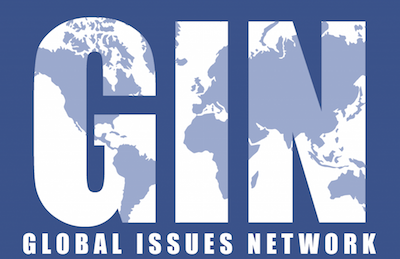https://youtube.com/watch?v=GkvfiNrIdvA+
Excerpt From: Rischard, Jean-Francois.
“High Noon: 20 Global Problems, 20 Years To Solve Them.” iBooks.
“One of five people on this planet depends on fish as the primary source of protein. Total fish production was estimated at around 125 million tons per year in the late 1990s, worth about $70–80 billion. With the population increase and higher standards of living, demand will increase substantially. Fishing is central to the livelihoods and food security of many communities, indeed entire countries and regions. The international trade in fish and fish products is valued at about $50 billion a year.
But there is a massive problem: the viability of many fisheries and the survival of many species are threatened by overcapacity of the world’s fishing fleets (about 100 percent above sustainable fishing levels) and by bad management practices (resulting, among other things, in wasting one-fourth of the sea catch). Illegal fishing could well account for 30 percent of the total production of some fisheries. And governments aren’t being helpful: fishing subsidies run at close to $15 billion a year.
The results: about 50 percent of marine fisheries are fully exploited, 20 percent are overexploited, and much of the rest are exploited in an unsustainable, self-destructive manner.20 Among the major marine fish stocks—like cod and tuna—three out of four are being fished at or above their biological limit. New nets and technologies for locating schools of fish are making things worse. Some scientists even believe that despite statistics showing that the global catch has been stable or growing, it may in fact have been on the decline for a decade—in part because China may have badly overstated its production figures.
These problems have encouraged the ascent of aquaculture, growing so fast in the 1990s that it now accounts for some 40 million tons, or one-third of the world’s fish production. Yet it brings its own worries: chemical pollution, and biological risks as farmed fish escape and join wild communities. These concerns are increased because of the sheer range of countries, from Canada to China, that are experimenting with genetic modification programs. Another worry is the aberration of resorting to sea catch for feeding farmed fish.
Fisheries depletion is a tough issue for the world’s governments. Solving it would require massive reductions in fishing fleets, stringent controls on illegal fishing and fishing practices, strictly enforced limits on the number of fish to be taken in a given period, and other politically unpalatable measures. Even the European Union (EU), with its collective approach to the issue, has so far failed to stabilize fish stocks in the North Sea. Yet the world won’t solve its fisheries depletion problem without much more determined global action along these lines.
https://youtube.com/watch?v=rDiuj6Vvofs+
There are some radical, even surprising alternative ideas around that could facilitate global action. Scientists have noted that if you ban fishing altogether for several years in some areas, the overall catch will be increased, and in a sustainable way. In some 100 areas where such bans occurred, the number of fish increased 90 percent within a few years, their size increased 30 percent, and the number of species by 20 percent. Fascinatingly, these beneficial effects seem to spill over into adjacent areas where fishing remains permitted: in St. Lucia, for instance, one-third of the country’s fishing grounds were designated notake areas in 1995, and within three years, commercially important fish stocks had doubled in the seas adjacent to these areas. Hence the idea of creating a global network of fishing parks, with alternating bans in designated areas and constant fleet redeployments—with the added benefit that such a policy would be easy to enforce, as any fishing vessel entering a banned area could easily be tracked by satellite.
Other pathbreaking ideas adopted by, for instance, New Zealand, Iceland, and parts of the United States would also be good candidates for global application. They have given fishermen rights to an assigned quota (set at a sustainable level) and have allowed them to trade the quotas freely—with the result that the stocks are reviving.
As with many of the twenty burning global issues, the cost of tackling this one could be very modest on a global scale—as these ideas hint at. What’s lacking is not so much resources as new approaches to global problem-solving—more on this later.”
